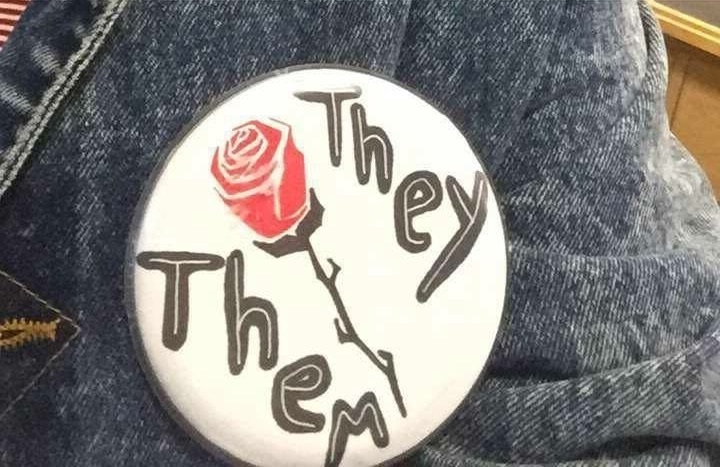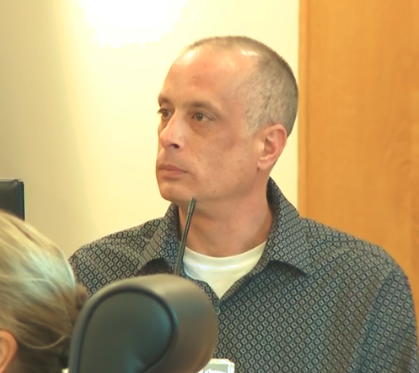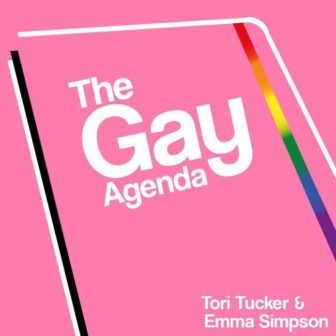 By Tori Tucker
By Tori Tucker
The Gay Agenda
“Everyone go around the room and tell us your name, where you’re from, your personal pronouns and how you celebrated our win on Friday!”
It was a refreshing opening to a public meeting. I had never been to a Planned Parenthood meeting before Sunday’s Activist Training session, but from what I can tell, this is how they open just about all of their meetings. Name. Hometown. Pronouns.
As someone who has friends who use different pronouns that may not match society’s perception of them based on their appearance, and as a student on a liberal arts campus where I’ve had professors use similar ice-breakers, I found this intro familiar and comfortable, but as we went around the room I came to realize that this was not so for some of my fellow attendees.

Tori Tucker
As we went around in a circle of she/her pronouns we stopped at one older woman. “I don’t have any pronouns,” she stated, sounding a little uncomfortable. Obviously this was new to her. The first time a professor had us write our pronouns down I had been confused too because I’d never met anyone that used pronouns aside from what they presented as.
This past year I became friends with a theater major. Frank Meninno has a sparkling personality and always has a joke to make, even when it comes to serious topics like when we talk about politics or the struggles within the LGBTQ community. Frank identifies as agender, which means they don’t identify with a particular gender, thus they use they/them pronouns.
This was a new concept to me when I first met them. I’m not going to lie, it took some getting used to and I certainly slipped a few times when using pronouns to describe them, but now it comes naturally to use they/them pronouns when describing Frank.
We sat down together to talk about how the Planned Parenthoods of Northern New England now carry hormone treatment options, as well as their preferred name and pronoun policy. I started with asking them about their preferred pronouns.
We kicked it off celebrating the big news that Planned Parenthood Northern New England now has hormone treatment options, which are covered by insurance at all their locations.
“This is so great!” they exclaimed. “It means that I get to be on testosterone because that’s one of the only ways that I can be. When I started testosterone the Planned Parenthood near me didn’t carry it, so I had to wait until I went to college before I was 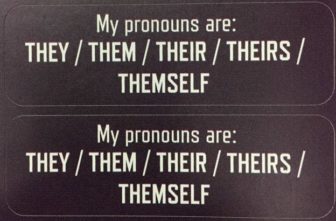 able to start them. I’m so grateful to Planned Parenthood because there’s no way I’d be able to get my hormones without them. They also accept and use my correct pronouns which is amazing because so few places do that. I also don’t have to pretend to be a trans guy to get testosterone treatment. I can be nonbinary and get the treatment I need.”
able to start them. I’m so grateful to Planned Parenthood because there’s no way I’d be able to get my hormones without them. They also accept and use my correct pronouns which is amazing because so few places do that. I also don’t have to pretend to be a trans guy to get testosterone treatment. I can be nonbinary and get the treatment I need.”
Unfortunately proper pronoun usage is an issue at a lot of health centers that are privately run. I went on to ask Frank why they use they/them rather than he/him or she/her pronouns.
“Other pronouns make me uncomfortable,” they explained to me. “I don’t understand or relate to gender at all; when I call myself a boy or girl it puts expectations on myself that don’t align with what I want, so they/them pronouns align with how I want to present myself.”
Of course with using they/them pronouns there is always some commentary from people that are less exposed to people that identify with these pronouns. In my experience people have expressed that they don’t understand the singular usage of they/them pronouns, some say this in a well-meaning way and are eager to learn, but from some others it’s the opposite, so of course I asked Frank what they do in a situation where someone doesn’t understand. They explained that it really depends on the person in question.
“If it’s relevant to me or if they’re an important person in my life I explain because I want them to stay in my life, but if they’re a stranger I don’t care. People don’t generally say it to my face.”
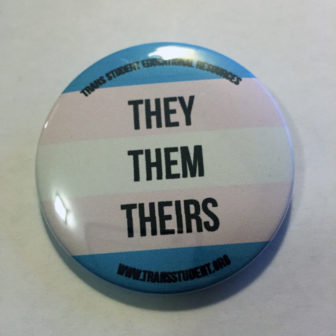 They went on to say that it should be as normal as if you were talking about someone you don’t know whose gender hasn’t been identified. Like if someone told you they were having a friend over. You might respond with ‘who are they?’ “I want it to be as normal as if they were just referring to someone they don’t know, but I don’t think it’ll ever be that way.”
They went on to say that it should be as normal as if you were talking about someone you don’t know whose gender hasn’t been identified. Like if someone told you they were having a friend over. You might respond with ‘who are they?’ “I want it to be as normal as if they were just referring to someone they don’t know, but I don’t think it’ll ever be that way.”
As far as responding to those that are eager and willing to educate themselves on proper pronoun usage they suggest going online. “There’s lots of information you can seek out online written by queer people to educate those that aren’t queer. Generally it’s best to try to find people who are willing to answer your questions and if you have queer people in your life, more often than not they will be willing to answer your questions. Just keep in mind that there are also some people that won’t want to talk about it. Just listen to what queer people have to say. And if you don’t know someone’s pronouns just avoid using gendered pronouns or using pronouns at all,” Frank said.
They emphasized that it’s important for straight/cis people, in order to be good allies to the LGBTQ community to listen to queer people. There are so many sources on the Iinternet to use to learn about issues, many of them written by LGBTQ identifying people. And while sources from straight/cis writers are also often valid, it’s also vital to listen to the queer community in regards to queer issues.
As my friend Justin chimed: “It’s like a bunch of white people deciding what the biggest problems are for people of color.”
Linked below are some sources for further information on pronoun usage for the trans and nonbinary community, including a video series done by Planned Parenthood. To wrap it up, and to re-emphasize, it’s important to respect a person’s personal pronouns. Just because it is difficult to get used to doesn’t mean it’s an excuse to misgender someone. (Believe me, they deal with it enough.)
The most important thing you can do to be a good friend and an ally to the LGBTQ community, specifically the trans and nonbinary community is to let their voices be heard.
Planned Parenthood has a series of videos called “Gender Pronoun Dos and Don’ts”
A basic guide to pronoun usage from Carleton College
9 Ways to Shut Down Objections to They/Them Pronouns from EverydayFeminism.com
Tori Tucker and Emma Simpson are Keene State College students who work on the column The Gay Agenda together. It is posted every Sunday at InDepthNH.org

Tori Tucker
Tori Tucker was born and raised in Portsmouth, New Hampshire. She is a student, author, and activist, and is currently in her senior year at Keene State College where she is finishing her English-Writing BA. In addition to being a writing student Tori also is pursuing minors in music and German.

Emma Simpson
Emma Simpson is a Women’s and Gender Studies major currently in her junior year at Keene State College. She is the vice president of her campus a cappella group and involved with Planned Parenthood as a volunteer.
